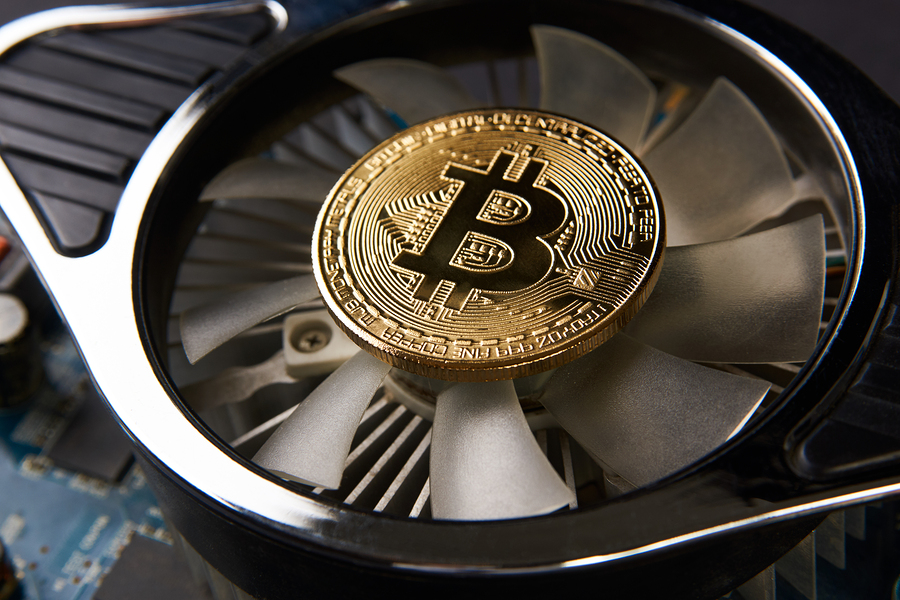Tokyo Firm Turns to Bitcoin Mining to Utilize Excess Solar Energy
10.09.2024 11:00 1 min. read Alexander Stefanov
A Tokyo Electric Power Company (Tepco) subsidiary is exploring Bitcoin mining as a way to utilize excess renewable energy.
Tokyo-based Agile Energy X is testing the use of surplus solar energy to fuel Bitcoin mining operations. The company’s president, Kenji Tateiwa, noted that success in this endeavor could lead to increased adoption of green energy, as reported by Asahi Shimbun on September 8.
The initiative draws inspiration from Japan’s “output control” practices, which involve intentionally limiting renewable energy production to manage supply and demand or to meet transmission constraints.
Agile Energy X has set up mining rigs near solar farms in Gunma and Tochigi prefectures to capture and use otherwise wasted energy.
According to Asahi Shimbun, Japan experienced output control affecting 1,920 gigawatt-hours of power in 2023, equivalent to the annual consumption of approximately 450,000 households. Simulations by Agile Energy X suggest that if renewable energy were to constitute 50% of Japan’s power supply, about 240,000 gigawatt-hours could be lost annually due to curtailment.
The company estimates that utilizing 10% of this surplus energy for Bitcoin mining could yield around 360 billion Japanese yen (approximately $2.5 billion) in Bitcoin each year.
Tateiwa suggested that if Bitcoin mining proves profitable, it could lead to greater investment in green energy.
-
1
Bitcoin: What to Expect After Hitting a New All-time High
10.07.2025 14:00 2 min. read -
2
Peter Brandt Issues Cautious Bitcoin Warning Despite Bullish Positioning
10.07.2025 20:00 2 min. read -
3
Vanguard Now Owns 8% of Michael Saylor’s Strategy, Despite Calling BTC ‘Worthless’
15.07.2025 17:09 2 min. read -
4
Standard Chartered Becomes First Global Bank to Launch Bitcoin and Ethereum Spot Trading
15.07.2025 11:00 1 min. read -
5
Bitcoin Reaches New All-Time High Above $116,000
11.07.2025 7:56 1 min. read
Ethereum Spot ETFs Dwarf Bitcoin with $1.85B Inflows: Utility Season in Full Swing
Ethereum is rapidly emerging as the institutional favorite, with new ETF inflow data suggesting a seismic shift in investor focus away from Bitcoin.
Ethereum Flashes Golden Cross Against Bitcoin: Will History Repeat?
Ethereum (ETH) has just triggered a golden cross against Bitcoin (BTC)—a technical pattern that has historically preceded massive altcoin rallies.
Bitcoin Banana Chart Gains Traction as Peter Brandt Revisits Parabolic Trend
Veteran trader Peter Brandt has reignited discussion around Bitcoin’s long-term parabolic trajectory by sharing an updated version of what he now calls the “Bitcoin Banana.”
Global Money Flow Rising: Bitcoin Price Mirrors Every Move
Bitcoin is once again mirroring global liquidity trends—and that could have major implications in the days ahead.
-
1
Bitcoin: What to Expect After Hitting a New All-time High
10.07.2025 14:00 2 min. read -
2
Peter Brandt Issues Cautious Bitcoin Warning Despite Bullish Positioning
10.07.2025 20:00 2 min. read -
3
Vanguard Now Owns 8% of Michael Saylor’s Strategy, Despite Calling BTC ‘Worthless’
15.07.2025 17:09 2 min. read -
4
Standard Chartered Becomes First Global Bank to Launch Bitcoin and Ethereum Spot Trading
15.07.2025 11:00 1 min. read -
5
Bitcoin Reaches New All-Time High Above $116,000
11.07.2025 7:56 1 min. read


